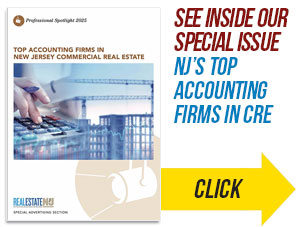By Joshua Burd
The rapid rise in interest rates has caused a sudden slowdown and growing uncertainty in New Jersey’s investment sales market, leading buyers to reassess their plans in the near term, while placing newfound pressure on even the strongest asset classes.
According to market experts, one immediate challenge is the need for clarity.

“The lack of data points is what’s hurting people right now in terms of being able to make a decision,” said Jose Cruz, a senior managing director with JLL, who leads the firm’s New Jersey-based investment sales team. Buyers are grappling with changes in borrowing costs, debt yields and other factors, he said, “but I do think the market is resetting in terms of pricing.”
Cruz expects deal activity to resume at a higher clip, but likely after an adjustment period and after buyers adapt to the new interest rate environment. He and other panelists said as much during a recent program hosted by NAIOP New Jersey, in late September, as the Federal Reserve had raised its benchmark interest rates five times year to date, including three hikes of 75 basis points, with more expected through year-end as it looks to tame inflation.
“We’re both (a buyer and seller), so we are continuing to be active, we have things out on the market and we are testing the market,” said PGIM Real Estate’s Anthony Pennimpede, executive director for debt financing. “But what I would say today is that I don’t feel that it’s a truly functioning market — and without any type of conviction or prediction.”

At the time of the Sept. 22 event, Pennimpede said buyers’ expectations had become less consistent from one deal to the next. That has raised the question of whether a company such as PGIM is better served as a lender than as an equity partner on certain projects, given its vast portfolio in both areas.
The market reset is several months in the making. Cruz, referring to deals valued at more than $10 million, said his team closed 11 investment sales in June and another 13 in July. Those numbers fell to one each in August and September, he said, although transaction volume is likely to rebound as buyers and sellers adapt.
Cruz noted that there are still buyers in the market, with different profiles for different asset classes. The multifamily sector continues to draw institutional capital, he said, “but they’re being cautious, they’re being smarter about how to underwrite.” The same is true for industrial properties, while office buildings remain a target for private investors but few others.
Retail, meantime, has caught the eye of some institutions, at least in the case of grocery-anchored properties.
“There’s still a lot of money that’s floating out there and we are still seeing deals happen,” Cruz said in a follow-up interview. “It’s not a hard stop — there’s activity and there are bids.”
He added that “it’s deal-specific,” depending on asset class, location, upside and other variables, “but there’s still capital to put to work, so we are getting things done.”

In the interim, there’s no denying that economic uncertainty has impacted all property types, including industrial, which has grown to become a coveted asset class for real estate investors. Jessica Fraser, a vice president and investment officer with Prologis, said there is a growing divide between sellers and buyers about the value of development sites, making it more difficult to transact than six to nine months ago.
“When prices ultimately come in a lot lower — at least in a market like New Jersey, where maybe the sellers don’t have to transact because this is a deep market and land values will ultimately rebound here — those deals are coming off the table,” said Fraser, who is based in Prologis’ East Rutherford office. “So, it’s just a real mismatch and it makes it really hard to get that deal done.”
That could ultimately benefit well-heeled, entrenched developers like Prologis “because it pulls folks out of the market,” she said, but only after sellers have adjusted.

“It’s a period of price discovery right now,” said Dan Connaughton, a vice president for development with Link Logistics, who agreed that it would be harder to close land deals for at least the near term.
Deal volume figures to stabilize in the months ahead, but the speakers were reluctant to speculate when asked by Rutgers University’s Morris Davis, the moderator, where capitalization rates are heading.

“Why is this question so hard? Because it probably depends on the Fed, it depends on inflation, it depends on market sentiment,” said Davis, the Paul V. Profeta chair in real estate at Rutgers Business School. “But if you’re going to think about acquiring land and doing a development deal, you have to start thinking of: ‘What are cap rates going to be?’”
Davis also asked the panelists how they would mitigate risk as they transact in the months ahead.
“The bar is undoubtedly much higher than it was even back in the first quarter of this year,” Connaughton said. “Location is key right now. The more infill, the better here. Close to population centers is the goal, as close as we can get, and sometimes that means smaller sites, where we’re building smaller facilities.”









